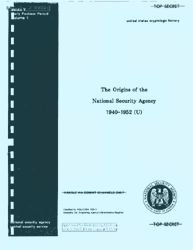Walzer (1965) strongly argued in favor of the influence on Arabic philosophy of Greek works whose Arabic translation has not been found. This was especially true, in Walzer’s eyes, for Porphyry. He did point to the Commentary to the Myth of Er included in Porphyry’s lost commentary to Plato’s Republic, to the lost commentary on the De intepretatione - which he thought was known to al-Farabi - and mostly to the lost writing on the ‘‘Harmony between Plato and Aristotle.’’ This writing is unknown in Arabic and to bibliographers, but counted for Walzer as one of the main sources of inspiration for several Arab philosophers: not only and predictably al-Farabi, whose K. al-jam‘ echoed Porphyry even in the title, but also al-‘jmiri (to whom Walzer attributed the K. al-sa‘ada wa-l-is‘ad) and Miskawayh, whose Tahdhtb al-akhlaq could be used to ‘‘get a fuller picture of what this book may have been like’’ (Walzer 1965:286). Walzer was confident that the K. al-sa‘ada wa-l-is‘ad did make it ‘‘almost certain’’ that the Arabs knew Porphyry’s lost Harmony, which could be reconstructed as being a collection of quotations, mainly from Plato and Aristotle, about ethical and political topics. Also, Walzer thought that in Miskawayh this harmony was reached, following Porphyry’s lead, in the sense that Aristotle counted as the appropriate guide for this world, and Plato for the world-to-come. For an up-to date discussion, see Martini Bonadeo (2008:1-14).
Finally, Porphyry’s role in the pseudo - Theology of Aristotle should be mentioned. A survey of the past scholarship that saw in the Theology of Aristotle a reworking by Porphyry of Plotinus’ writings ‘‘which an unknown late Greek or Syriac writer came to attribute to Aristotle’’ (Walzer 1965:283) has been provided by Aouad (1989:553-555). This reconstruction implies, to say it in Walzer’s words, that ‘‘the essential features of Porphyry’s paraphrase of a number of Plotinus’ essays may be recovered through a thorough analysis of the Arabic Theology of Aristotle, rearranged in its original order and freed from later additions’’ (Walzer 1965:285). Pines (1971) and Thillet (1971) side with Walzer; this reconstruction has been challenged byZimmermann (1986).
See also: > Aristotle, Arabic > al-Biruini, Abui Rayltan > Doxographies, Graeco-Arabic > al-Farabi, Abui Nasr > Miskawayh, AbU ‘All > al-Mubashshir ibn Fatik > PhiLosophy, Arabic > Plotinus, Arabic > Presocratics in the Arab World > al-ShahrastanI, Muljammad ibn ‘Abd al-Karlm > Translations from Greek into Arabic > TransLations from Greek into Syriac




 World History
World History









